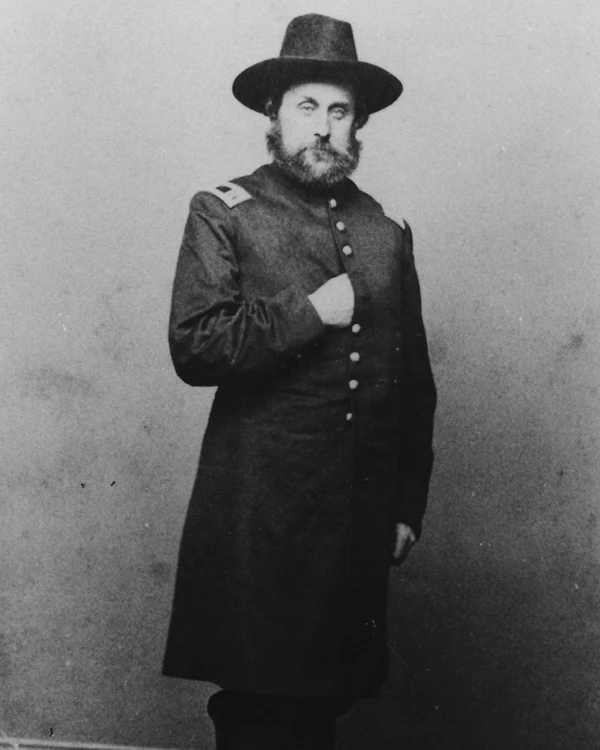Last updated: July 19, 2022
Person
Theron E. Hall

Library of Congress
Had it not been for the inhuman treatment of these poor people, we should have had a longer struggle, but good resulted from the evil.
- Captain Theron E. Hall, Assistant-Quartermaster, US Army
Early Life
Theron E. Hall was born in Sutton, Massachusetts, on November 8, 1821. He married Jemima W. Mann in Holden, Massachusetts on May 8, 1844.
Civil War
When the Civil War began, Hall was a manufacturer in Worcester County, Massachusetts, and an abolitionist. In July 1861, the 39-year-old Hall was commissioned an adjutant in the 21st Massachusetts Volunteer Infantry Regiment with the rank of lieutenant. The regiment was part of Major General Ambrose E. Burnside’s Ninth Corps. Hall served with that unit for a year and participated in the corps' operations along the North Carolina coast. He was promoted to captain in July 1862 and transferred to the US Volunteer Quartermaster Department.
Camp Nelson
In 1863, Hall was assigned to the Department of the Ohio and appointed the assistant quartermaster of Camp Nelson. He oversaw the construction of warehouses, barracks, stables, and many other buildings at the US Army base. Throughout 1863 and 1864, Hall was also responsible for supplying the Army of the Ohio in the field by managing the distribution of equipment, animals, and the various other materials of war. As an abolitionist, Hall showed humane and sympathetic support for the self-emancipated African Americans who made their way to Camp Nelson. After the infamous expulsion of several hundred Black refugees in November 1864, Hall protested to superior officers and wrote a letter to the New York Tribune under a pseudonym exposing the cruel treatment of the formerly enslaved women and children.
The expulsion order was soon overturned, and Hall was named the superintendent of the African American refugees at Camp Nelson. Alongside Rev. John G. Fee, Hall was one of the founders and planners of the “Home for Colored Refugees” at the Federal military base. Hall sought to provide educational and practical services for the Black population of Camp Nelson, but he faced criticism from superiors and hostility from the local community over his management of the refugees. In the summer of 1865, Hall was relieved as superintendent of the refugees at Camp Nelson. He subsequently resigned from the Quartermaster Department in December 1865.
Post-War Life
After the war, Hall served as the Superintendent of the Maine Soldier's Home. He moved to California due to poor health. A central figure in the development of Camp Nelson, Hall died in San Diego, California, on August 3, 1880. Hall's remains were returned home where he was buried in the family plot at Pine Grove Cemetery in Leicester, Worcester County, Massachusetts.
